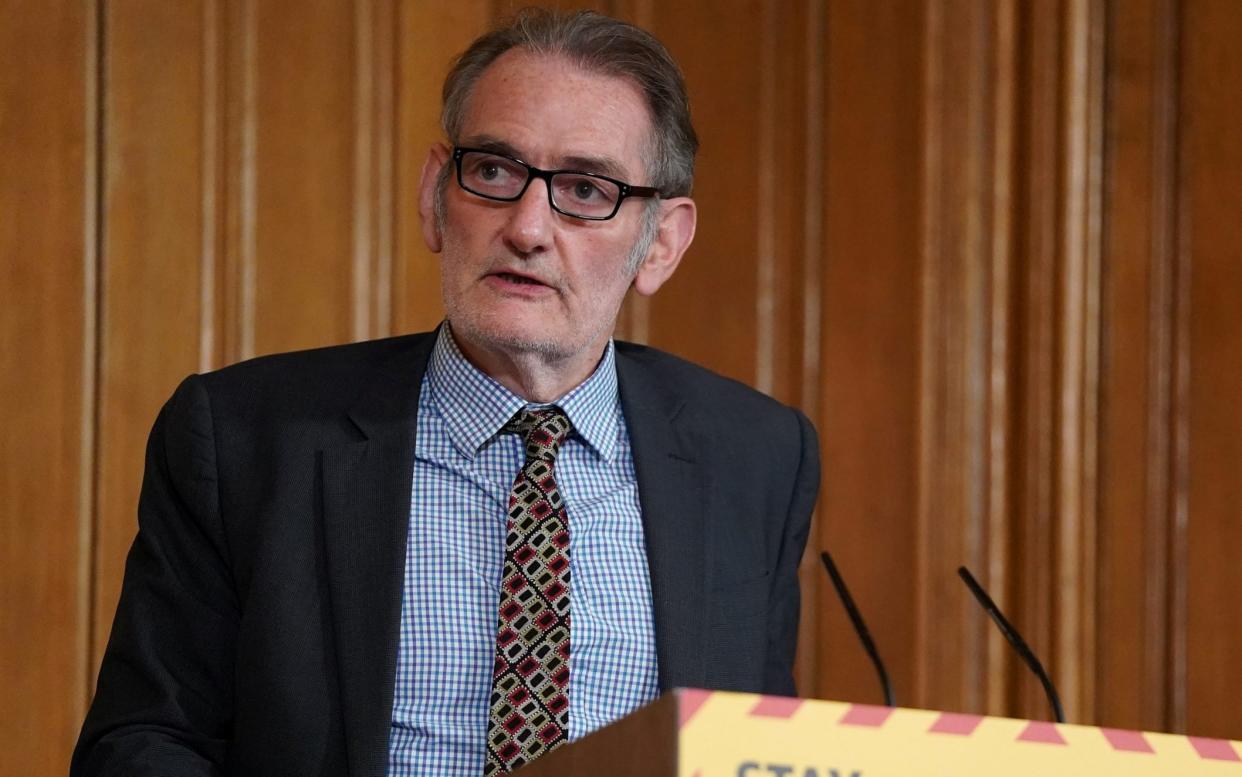Slow economic recovery from coronavirus will lead to 'significant number' of indirect deaths

A long, drawn-out economic recovery will lead to a "significant number" of indirect deaths from coronavirus, the UK's chief statistician has warned.
Amid fears that the economy could take five years to return to pre-crisis levels under a worst case scenario, Sir Ian Diamond said the effects of the pandemic would be far-reaching as people are "pushed into poverty".
With Rishi Sunak, the Chancellor, suggesting the UK is already in the middle of a recession, Sir Ian said an "L-shaped" recovery – in which the economy takes several years to return to pre-crisis levels – would lead to a notable increase in mortality.
While significant attention has been paid to the direct death toll caused by Covid-19, Sir Ian added that the "really important statistic" was excess deaths, which now stand at over 47,000, according to figures released by the Office for National Statistics (ONS).
The Government’s key scientific and medical advisers believe excess deaths – the additional number of people dying compared to a five-year average – is the most reliable measure for assessing the impact of coronavirus on the UK.
Sir Ian also indicated that the full picture could take several years to emerge due to deaths from cancelled cancer screenings or a prolonged recession further down the line.
It comes after ONS figures released separately on Wednesday revealed that the UK economy contracted at the fastest pace on record in March, with the country now facing its worst recession in 300 years.
Speaking to the Commons public administration committee, Sir Ian said the ONS would be producing research looking at four different categories of death, including the impact of an economic downturn.
These include direct fatalities, indirect deaths caused by the NHS prioritising resources, and longer term deaths related to fewer people being screened for diseases such as cancer.
On the economy, he said: "If - and I stress, if – we end up with an 'L-shaped' recession as opposed to a 'V-shape' where we come back out quite quickly, an 'L-shape' over a long period of time could lead to a significant number of deaths as a result of people being pushed into poverty or into long-term unemployment.
"We know that people in the lowest deciles of income have higher mortality rates in this country, and if you increase that you are likely to see an increase in deaths."
During the hearing, Sir Ian also said that while Covid-19 deaths were now falling in hospitals, care homes and the community, the rate of decline was not occurring as "we would perhaps like".
To provide more up-to-date information on fatalities, he suggested the Government should now legislate to require all deaths to be recorded electronically within 24 hours.
And he warned that "we need to be worried as a nation" about the potential of reseeding the virus in the population as a result of coming out of lockdown too quickly, which in turn could see the pandemic return in a second wave.
With the easing of lockdown measures dependent on timely information about the spread of the virus, Sir Ian said monitoring of outbreaks by the new Joint Biosecurity Centre would help provide more up-to-date information.
However, the new NHS contact tracing app could only be part of an "ecosystem" of measures to track the spread of the virus rather than a total solution.
"I fear that some of the most vulnerable members of our society will perhaps be the least likely to get the app, whether it is old people, whether it is people from disadvantaged groups," he added.

